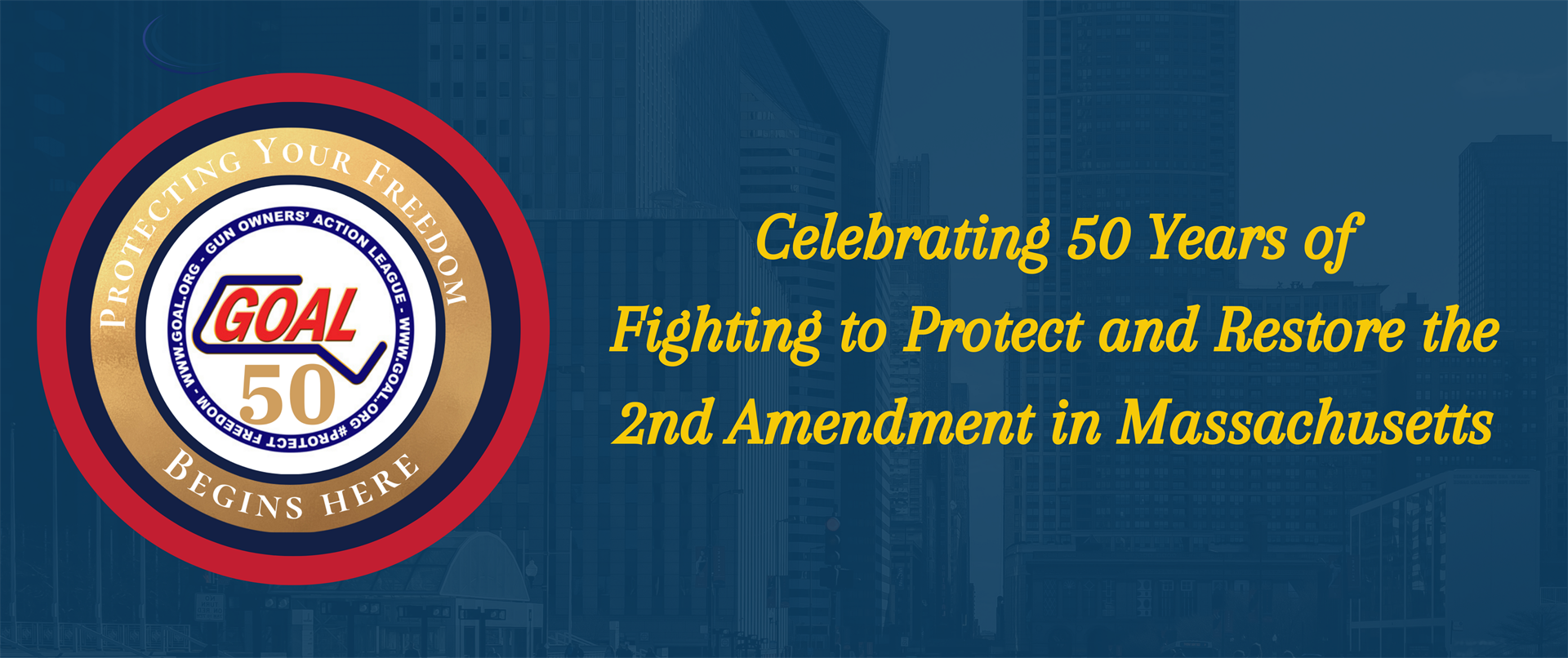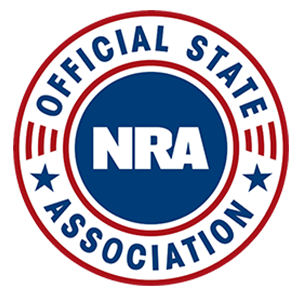LTC AND FID APPEAL/DENIAL PAGE
Every citizen of the state of Massachusetts has the right granted to them by the 2nd Amendment of The Constitution to keep and bear arms. If you have a clean mental health and criminal history there is no reason for any citizen in Massachusetts to be denied these given rights.
LTC Denial: The law says you can appeal a suspension, revocation, denial of, or restriction applied to a License by filing a petition for judicial review in district court within 90 days. The law also says that if you do not get a License within 40 days from your date of application, you can assume you are denied and go to court. The court will expect you to prove that the chief’s decision to deny you was“capricious” or “arbitrary.”
FID Denial: With the passing of Chapter 284, beginning on January 1, 2015 licensing authorities will have limited power to deny issuance of an FID License for reasons other than statutory disqualifiers. For the licensing authority to deny an FID License based on “unsuitability” there is a burden of proof upon the licensing authority, they must petition district court, notify the applicant in writing with reason for denial and include the evidence serving as the basis for denial. Once the court receives the petition with evidence, they must hold a hearing within 90 days. If no decision is rendered during the 90 day time period following the hearing, the applicant will be found suitable.
For the court to deny issuance of an FID the court must show supporting evidence that there is:
(A) reliable, articulable, and credible information that the applicant has exhibited or engaged in behavior to suggest the applicant could potentially create a risk to public safety; or
“(B) existing factors that suggest that the applicant could potentially create a risk to public safety.
If your reason for denial is not on this page you can petition the state Firearms Licensing Bureau.
**please note, sealed records are opened by the CJIS during the firearms license review process.**
| Reason for Disqualification | License To Carry Firearms | Firearms Identification Card |
| Not a “suitable person” in the eyes of the chief. | Can be appealed in district court. | N/A, the chief shall issue a card to any person who meets the eligibility criteria. |
| Felony conviction as a juvenile. | Permanent ineligibility. | Permanent ineligibility. |
| Felony Conviction as an Adult | Permanent ineligibility | Permanent ineligibility. |
| Being the current subject of restraining order (209 A). | Ineligible while order is current. | Ineligible while order is current. |
| Conviction under any law regulating the use, possession or sale of controlled substances as defined in Section 1 of Chapter 94C. | Permanent ineligibility | Permanent ineligibility. |
| Confinement to a hospital or institution for mental illness. | Ineligibility waived with physician’s affidavit. | Ineligibility waived with physician’s affidavit. |
| Conviction of a misdemeanor punishable by imprisonment for more than two years (includes conviction for OUI after May 27 1994). | Permanent ineligibility. | Permanent ineligibility. |
| Conviction of a “Violent Crime”2 | Permanent ineligibility.3 | Permanent ineligibility. |
| Conviction under any law relating to weapons or ammunition for which imprisonment may be imposed | Permanent ineligibility.3 | Permanent ineligibility. |
| Being the subject of an outstanding arrest warrant in any state or federal jurisdiction. | Ineligible with outstanding warrants. | Ineligible with outstanding warrants. |
A violent crime is any “crime which could have been punished by a term exceeding one year, or any act of juvenile delinquency involving the use or possession of a deadly weapon that would be punishable by imprisonment for such term if committed by an adult, that (i) has an element the use, attempted use or threatened use of physical force or a deadly weapon against the person of another (ii) is burglary, extortion, arson or kidnapping; (iii) involves the use of exp losives; or (iv) otherwise involves conduct that presents a serious risk of physical injury to another.” This definition includes simple “assault” “assault and battery” and “burglary”.
How to appeal an LTC denial or restriction
It is important that you understand that the Firearms Licensing Board (FLRB) has the authority to review only misdemeanor convictions, and that the FLRB may not review convictions for:
a) an assault or battery on a family or household member, or a person with whom you have had a substantive dating relationship, as defined by G.L. c. 209A, s1;
b) a crime involving use, possession, ownership, transfer, purchase, sale, lease, rental, receipt or transportation of weapons or ammunition for which a term of imprisonment may be imposed; or
c) a crime regulating the use, possession or sale of controlled substances.
In addition, the statute specifies that the FLRB may not review a petition if the petitioner:
a) has a disqualifying felony conviction;
b) has multiple misdemeanor convictions, unless the offenses arise from one incident;
c) was denied a license to carry on the basis of suitability rather than a disqualifying conviction (the District Court is the appropriate forum for appeal in this case); or
d) is disqualified for a reason other than a misdemeanor conviction, such as having an active warrant or restraining order.
Finally, the FLRB may not review a petition until after the passage of five (5) years since the misdemeanor conviction or release from supervision, whichever is last occurring.
Please be advised that the FLRB will review your criminal history as a result of the filing of this petition.
Should your petition be eligible for review, you will be notified in writing of a hearing date. At the hearing you will have the opportunity to appear and/or submit documentary and testimonial evidence in support of your petition. The FLRB requests that you submit all documents that you wish it to consider prior to the hearing date to ensure a timely review. As required by the statute, you bear the burden of proof by clear and convincing evidence that your are a suitable person to receive a firearm identification (FID) card or a license to carry (LTC) notwithstanding the disqualifying conviction.
We have included a list of documents (see below) which we recommend that you include with your petition. While it is not necessary to retain the services of an attorney to represent you at the hearing, you should feel free to do so if you so choose.
Please note that if your petition is successful, and the FLRB determines that you are a suitable candidate for a LTC or FID card relative to the misdemeanor conviction, you must still apply to your local police chief for the LTC or FID card, and the final determination on issuing is made by the licensing authority.
To file a petition with the Firearm Licensing Review Board to start the review process, please forward:
1) the completed petition;
2) the required $100.00 filing fee (payable to the Commonwealth of Massachusetts);
3) a copy of a current or previous application for an LTC or FID card, as filed with your local licensing authority;
4) any documentation which will assist the FLRB in making its determination;
5) a list of witnesses, if any, that you want to have testify on your behalf;
6) a notice that you request the services of a stenographer to produce a verbatim transcript of the hearing, if you wish to have these services available. (Please note that the hearing is digitally recorded by CJIS, but that the petitioner is responsible for the cost of a stenographer’s services.)
All information should be sent to the:
Firearm Licensing Review Board
Criminal Justice Information Services
200 Arlington St., Suite 2200
Chelsea, MA 02150
Please be sure to have your signature on the petition notarized. Should you have any questions regarding this application or the supporting documentation, please contact the Criminal Justice Information Services at 617-660-4780, or visit our web site at www.mass.gov/CJIS/frb, for more information
Click here for a printable PDF of the complete form
Recommended Supporting Documentation
1) A written statement, including specific proof and/or examples that demonstrate, by clear and convincing evidence, your suitability to possess a FID or LTC. If you have additional criminal charges that did not result in a conviction, these also may be addressed in the statement.2) A certified copy of the criminal conviction(s) that disqualifies you from being eligible to have a FID or LTC (you can obtain this from the trial clerk’s office of the courthouse in which you were convicted).
3) A list of witnesses, if any, that you plan on calling at the hearing to testify, specifying each witness’ full name, address and date of birth.
4) You may also include additional information, including certificates of training or education that you believe may be important for the FLRB to consider (i.e. firearm safety courses, letters of commendations, honorable discharge, etc.). In order to meet the evidentiary requirements at the hearing you will need to ask that the keeper of the records authenticate that the documents are true and accurate and kept in the usual course of business.
5) You may include letters of recommendation, including from your local police chief.
6) The arrest report pertaining to the conviction may be submitted. You may obtain a copy of the arrest report from the police department that investigated the case. You will need to ask that the police department certify that the report is an official business record pursuant to G.L. c. 233, ? 78. The police department may need to redact information that is confidential by statute prior to giving you the report. This documentation is especially important if you have been convicted of assault and battery, so that you may demonstrate to the FLRB that the assault is not domestic in nature.
*This page is made possible by the membership of GOAL and their generous donations. If you found this page helpful please consider making a Donation to GOAL!

